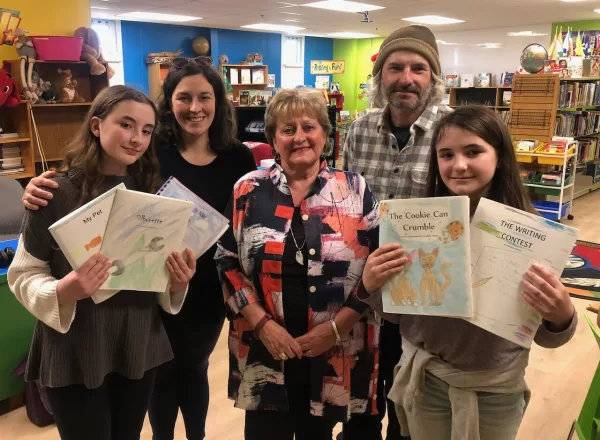
Habitat for Humanity New Brunswick is coming to Sackville with a new home expected to be ready this spring on Starr Avenue.
CHMA spoke with Habitat for Humanity New Brunswick CEO Perry Kendall about the process to find a family, and how the Habitat for Humanity model works to bring low income working households into home ownership. Hear the full interview right here:
“The model works really well,” says Kendall. “It helps [families] to build generational wealth and it gives them that opportunity to focus on perhaps their own career growth or their children’s education more so than when they were focused on ‘where am I going to be living next month? How am I going to pay my rent and pay my utilities that are beyond my means?’ So it really does make such an impact.”
The new Starr Avenue home is expected to be ready for a family to move in by springtime, but first Habitat for Humanity has to find the right family. Homes can receive up to 30 expressions of interest, says Kendall, and anywhere from 5 to 15 families may qualify.
Selecting a family is one of the challenging parts of the work, he says. There’s a staff person to handle the process, but “ultimately, the recommendation is made by a volunteer committee, which is then recommended to our board of directors, who makes that final decision,” says Kendall. And there are set criteria for families to qualify. They must be “living in a condition of need for better housing,” and they must have “a stable, earned income and a reasonable debt level.”
No down payment, no interest
The second criteria is important because the Habitat for Humanity mortgage model relies on families to be able to pay off their houses over time, albeit under favourable conditions. Unlike a bank or conventional mortgage lender, Habitat for Humanity requires no down payment, removing a key barrier for families without inherited wealth. The group also charges little to no interest, which in conventional mortgages can double or more what homeowners pay for their homes.
Kendall says mortgage payments are also geared to household income. “At no point will a family ever be paying more than 25% of their earned income towards their mortgage payment and property tax,” says Kendall, “because we collect the property tax payment on their behalf and pay that each year.”
Along with low interest and payments geared to income, there is one big caveat: If a family chooses to sell their home within 20 years of purchase, Habitat for Humanity reserves the right to buy it back at the original price. Families can retrieve their equity in their home by selling back to Habitat for Humanity, but there’s no cashing in on hot real estate markets, at least for two decades.
Kendall says that province-wide there’s nearly 100 families paying off Habitat for Humanity mortgages and all those payments feed back into the organization’s “Fund for Humanity”, a sort of financial engine that helps the organization grow its work. “The one and only thing we spend that money on is building and maintaining more homes,” says Kendall.
Donation of land started Sackville project
The Fund for Humanity is the “starting point” for Habitat for Humanity projects, but they also rely on support from various levels of government, cash fundraising, and contributions of building materials and land. “It often starts with a commitment from the community,” says Kendall, “and in this case, the first commitment was donation of land, and which is is obviously very important.”
The Starr Avenue lot was actually donated before COVID, but the pandemic and also restructuring of Habitat for Humanity New Brunswick caused delays. “So now we’re following through on that commitment,” says Kendall, “and certainly following through at a time that it’s most needed.”
Kendall says Habitat for Humanity will likely build nine projects in the province this year, and next year the plan is to build 12. The numbers are small but growing, and Kendall says the organization is aware that is it just filling one piece of a complex puzzle.
“It’s very rewarding work,” he says, “but the need is huge and and we certainly recognize that we’re only kind of scratching the surface of the greater need.”


















